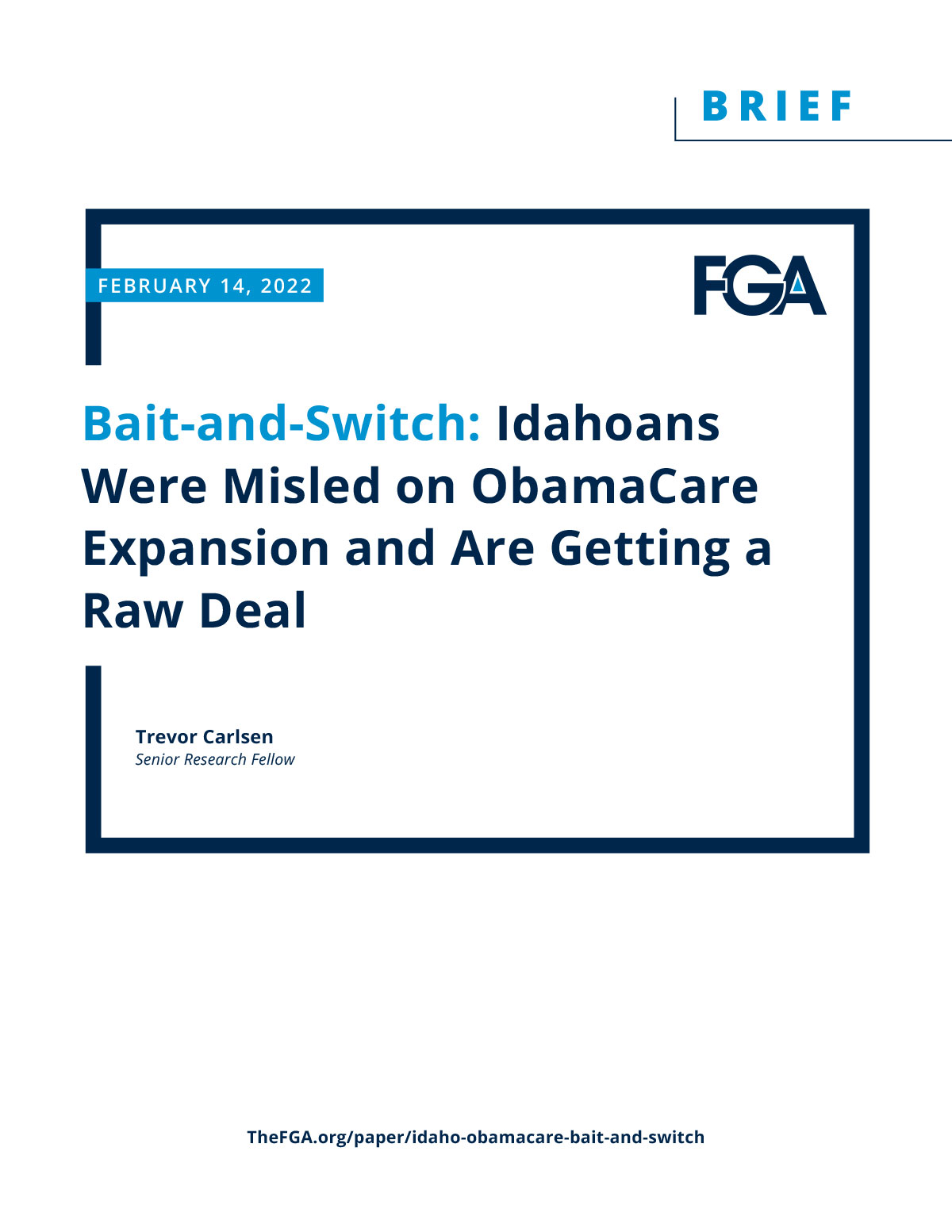As part of the Families First Coronavirus Response Act (FFCRA), Congress offered states an additional 6.2 percent increase in funding for their traditional Medicaid costs. While this was portrayed as pandemic-related relief, there was an insidious catch: In exchange for the increase in funding, states had to relinquish control over significant aspects of their Medicaid programs.

As long as states accept the funding boost, they cannot change Medicaid eligibility standards, adjust enrollment processes, or remove individuals from their Medicaid rolls—even if they have become ineligible or were never eligible in the first place. Individuals can only be removed from the program if they voluntarily disenroll or leave the state.
Unsurprisingly, these federal handcuffs caused Medicaid enrollment to spike to record-high levels, including individuals who were only briefly eligible during the pandemic and individuals who were enrolled into the program improperly. In order to truly return to normal, policymakers must act to restore common sense to Medicaid and unshackle the handcuffs states have been forced to wear.
IN THE MEDIA:
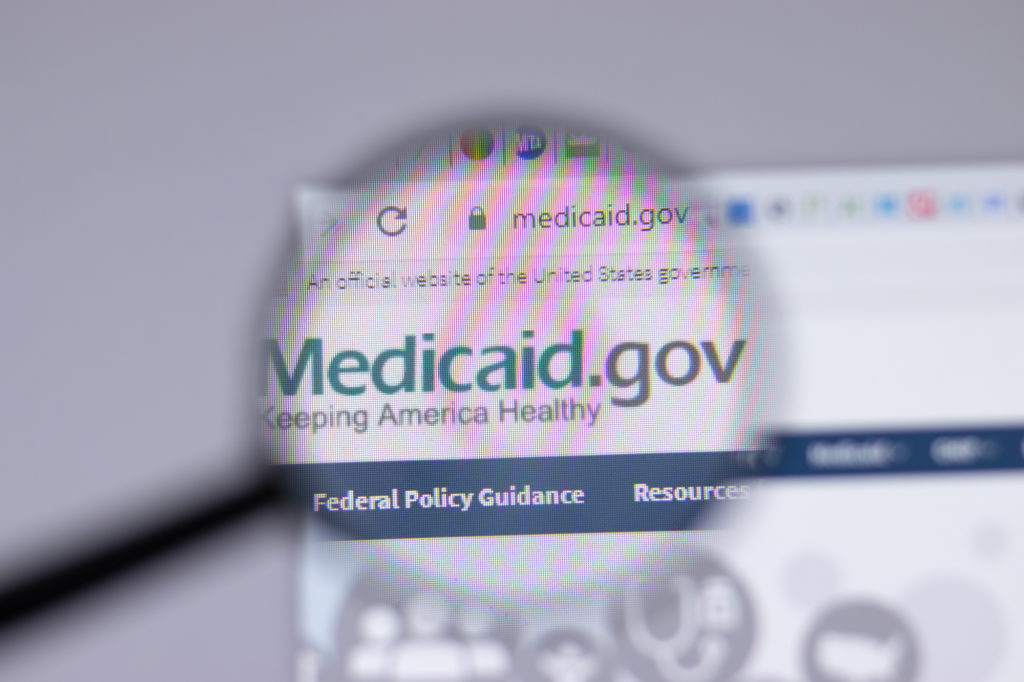
States should refuse the feds’ ‘free money’ that’s creating huge, costly Medicaid rolls

States Hold the Key to Unlocking Federal Medicaid Handcuffs

Thanks to Congress, Medicaid Is Spiraling Out of Control

FGA Applauds Senator Johnson And Representative Comer For Questioning High Improper Payment Rates

FGA Determines State Lawmakers Can And Should Opt Out of Federally Increased Medicaid Funding Without Fear of Repercussions

FGA Statement On Centers For Medicare and Medicaid Services Revoking Work Requirements
MEDICAID HANDCUFFS TOOL KIT
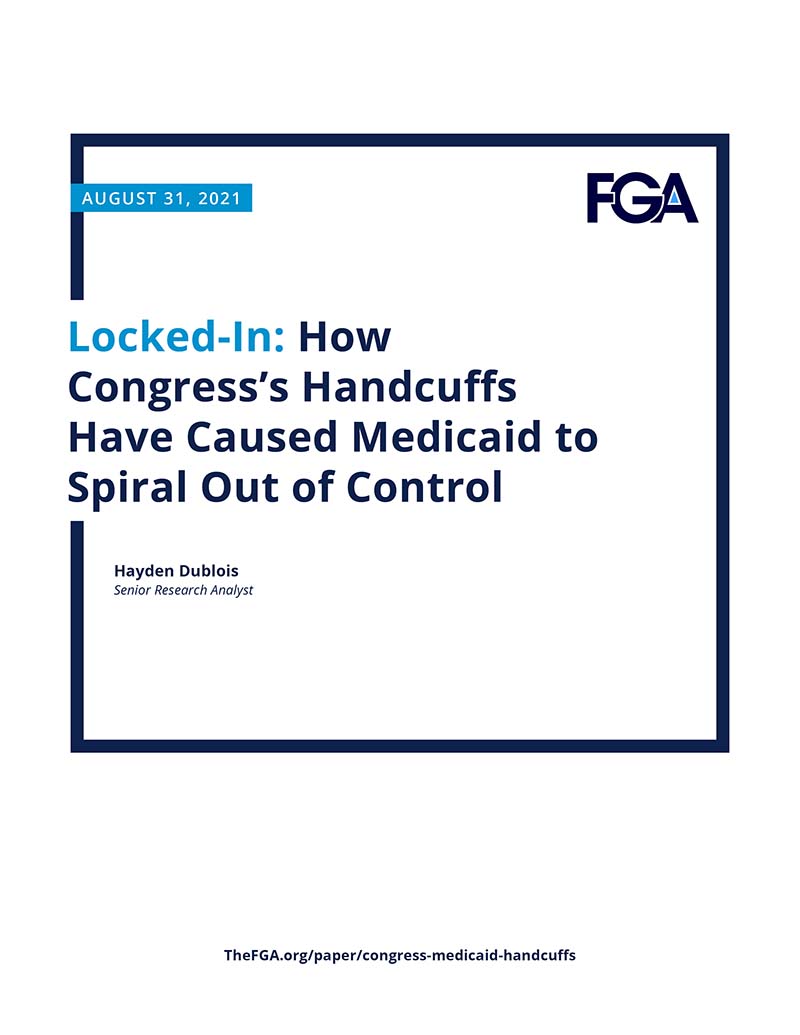
Locked-In: How Congress’s Handcuffs Have Caused Medicaid To Spiral Out of Control
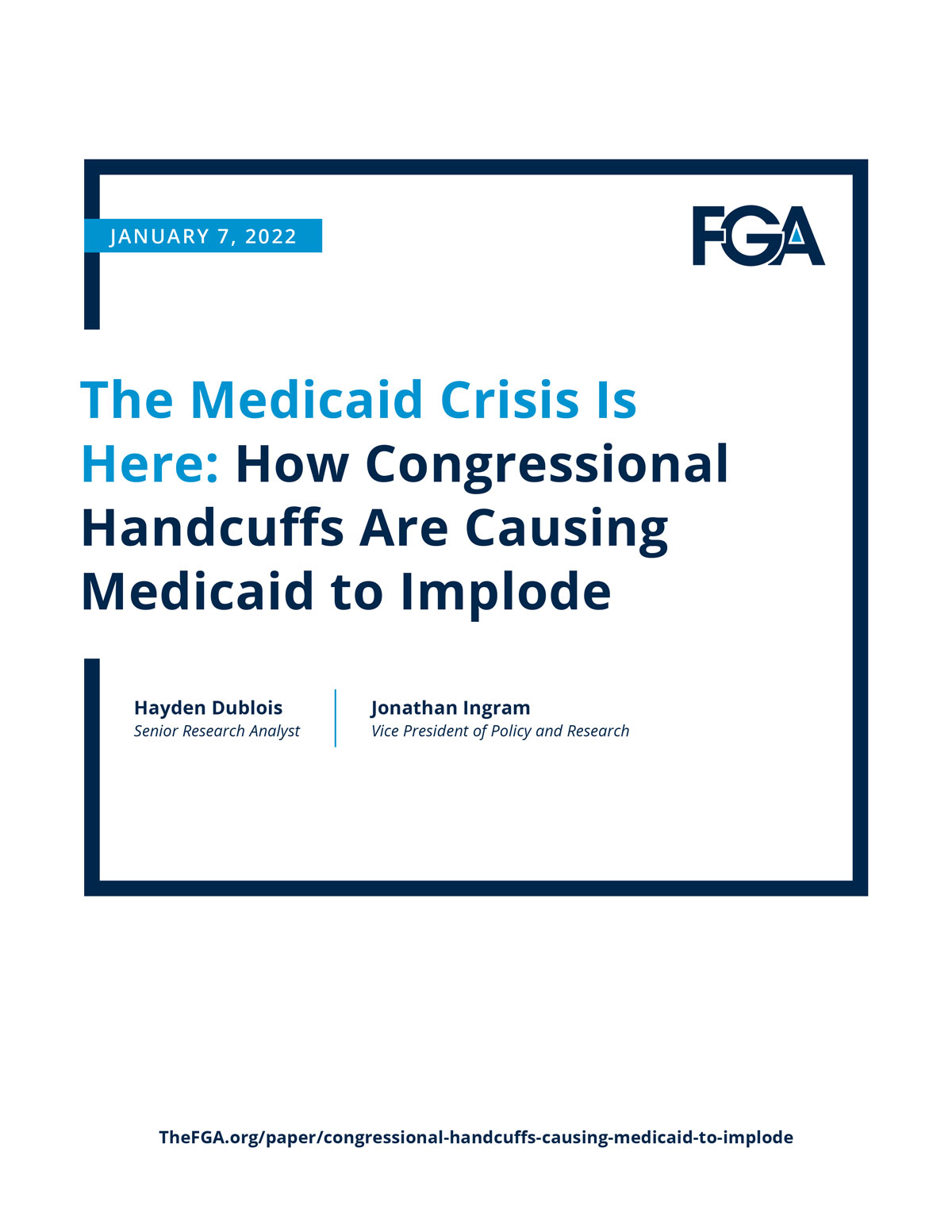
The Medicaid Crisis Is Here: How Congressional Handcuffs Are Causing Medicaid To Implode
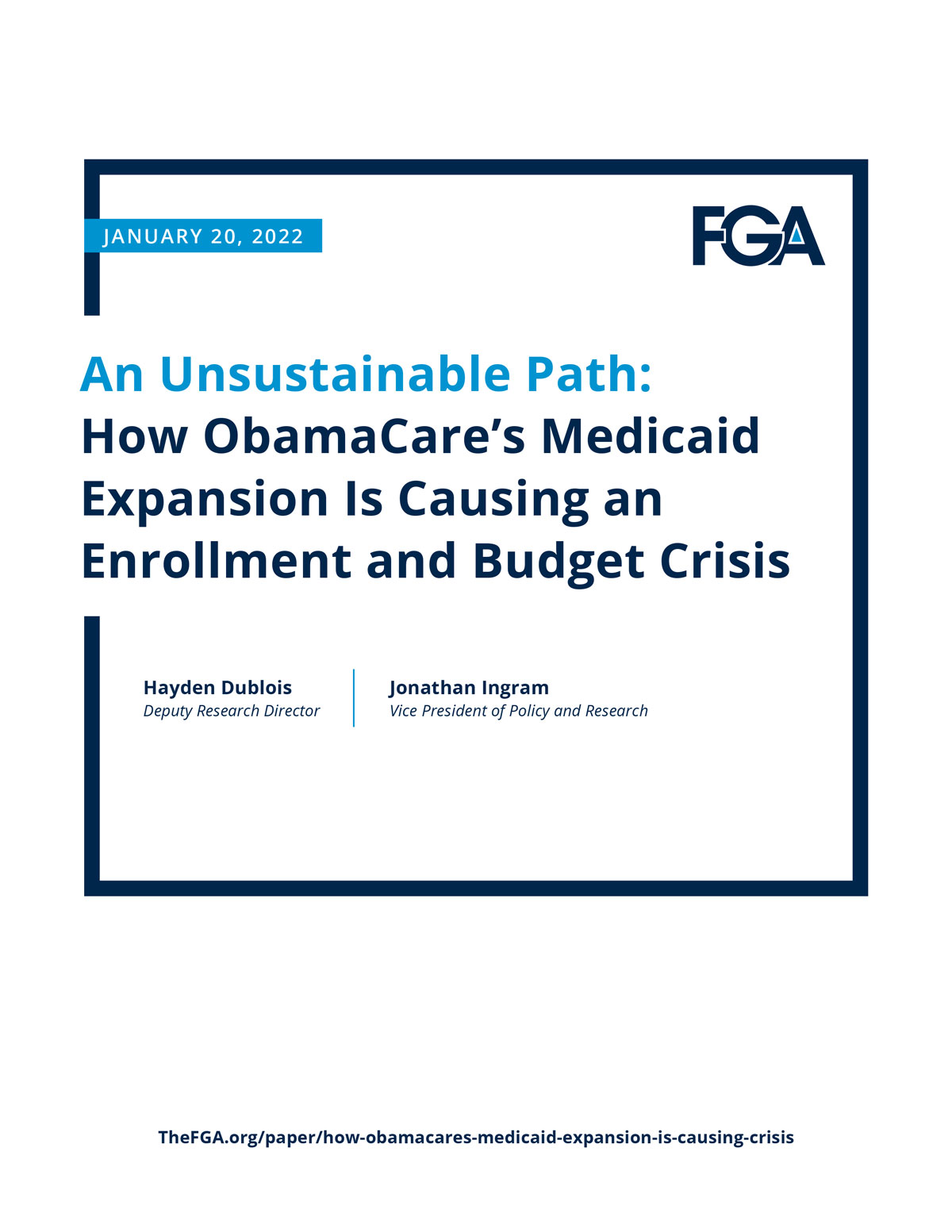
An Unsustainable Path: How Obamacare’s Medicaid Expansion Is Causing An Enrollment and Budget Crisis
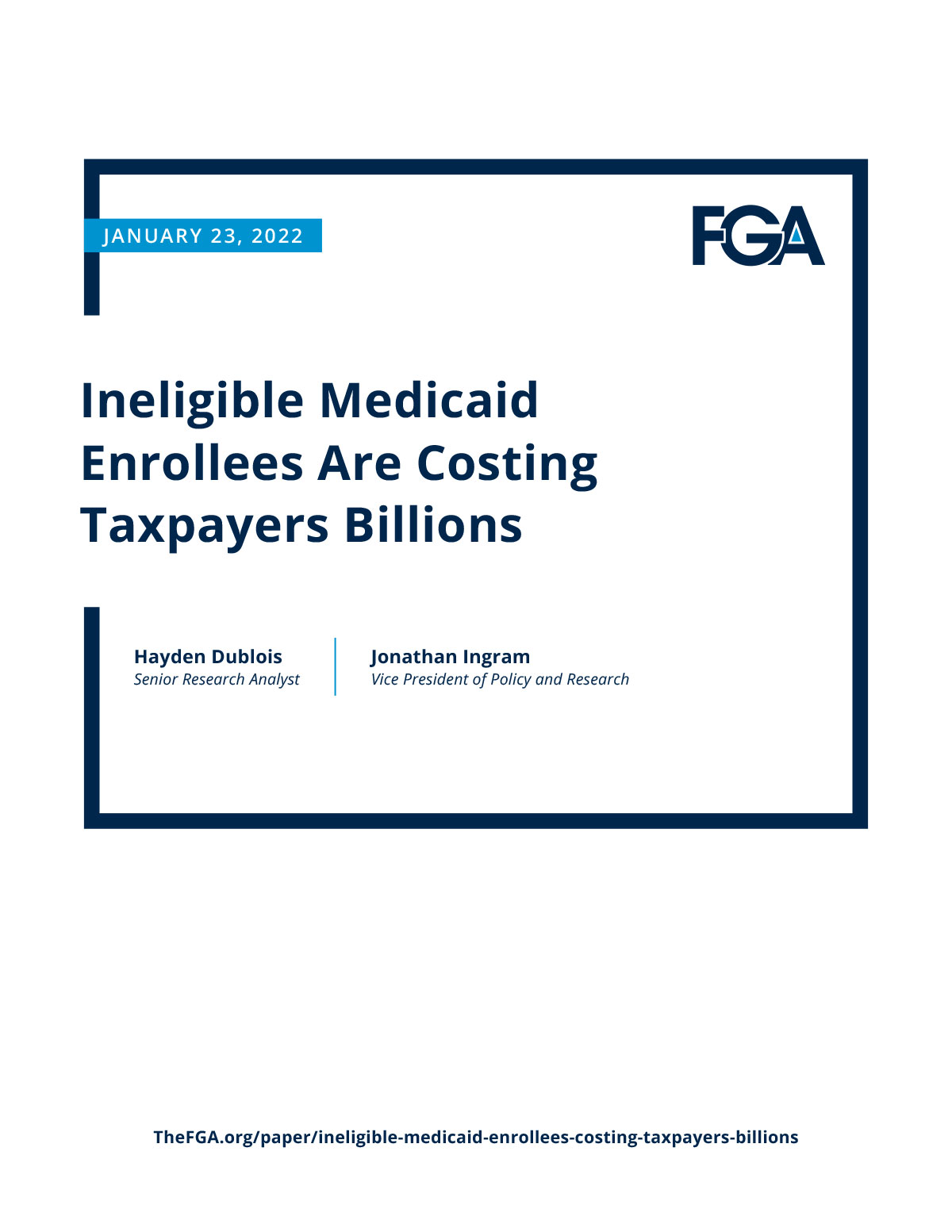
Ineligible Medicaid Enrollees Are Costing Taxpayers Billions
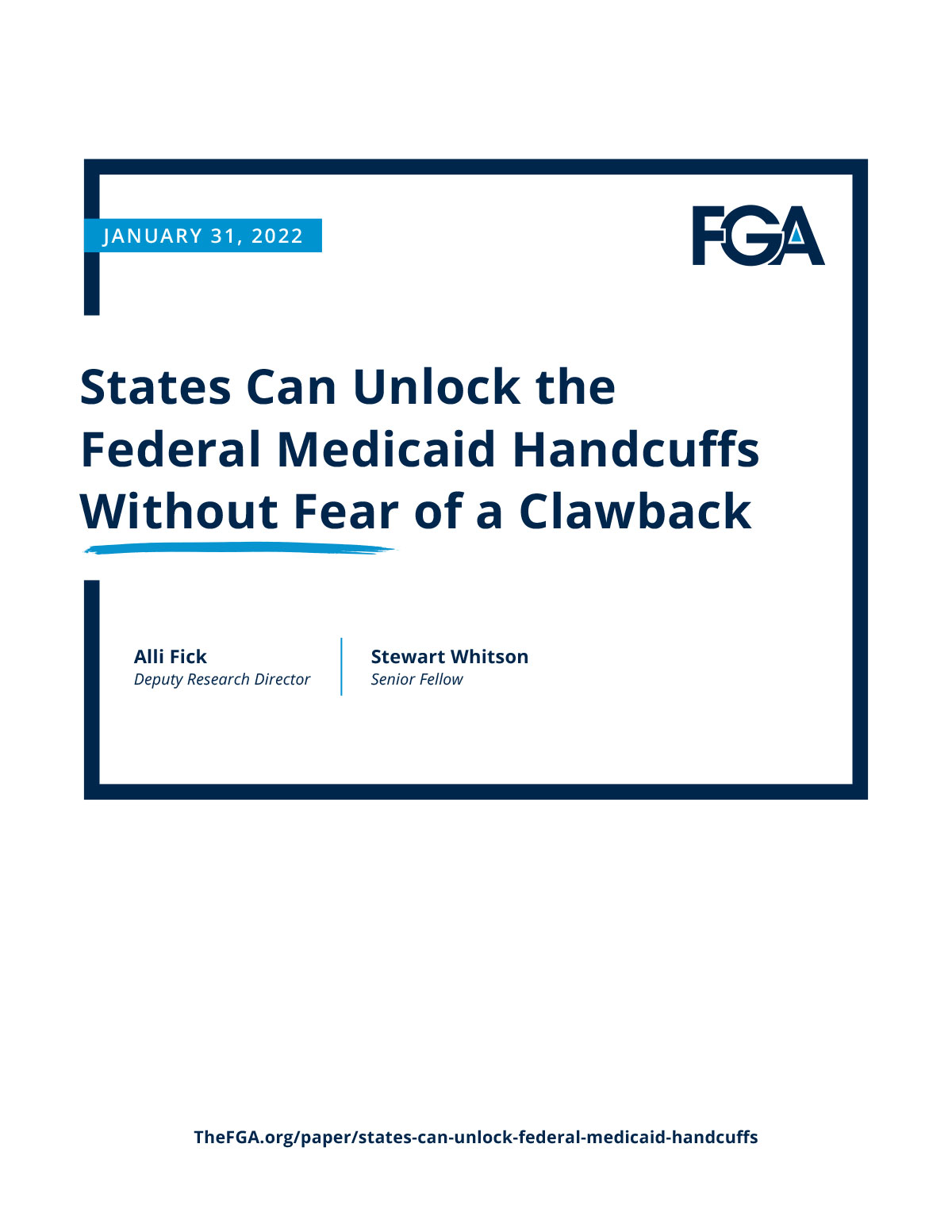
States Can Unlock The Federal Medicaid Handcuffs Without Fear of A Clawback
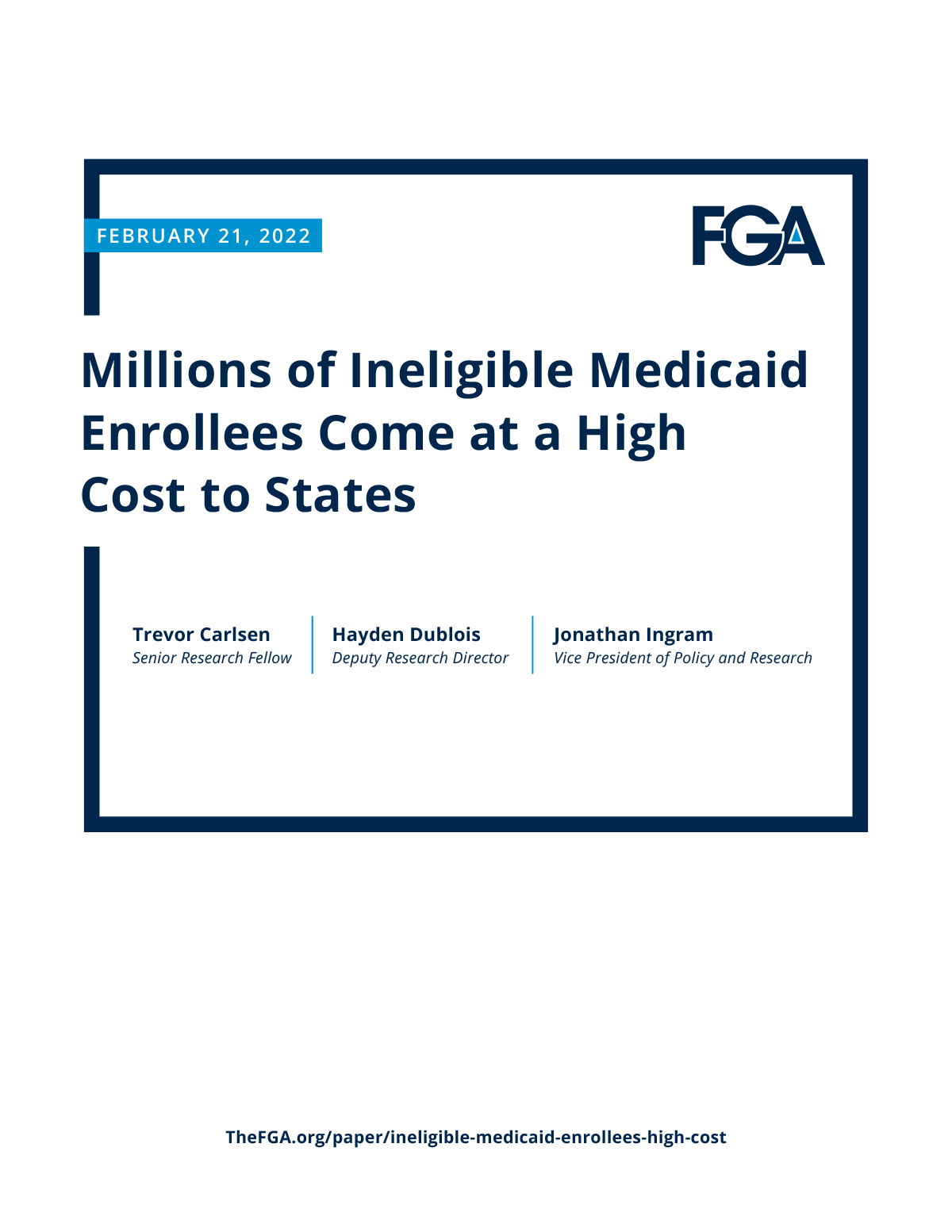
Millions Of Ineligible Medicaid Enrollees Come at A High Cost To States
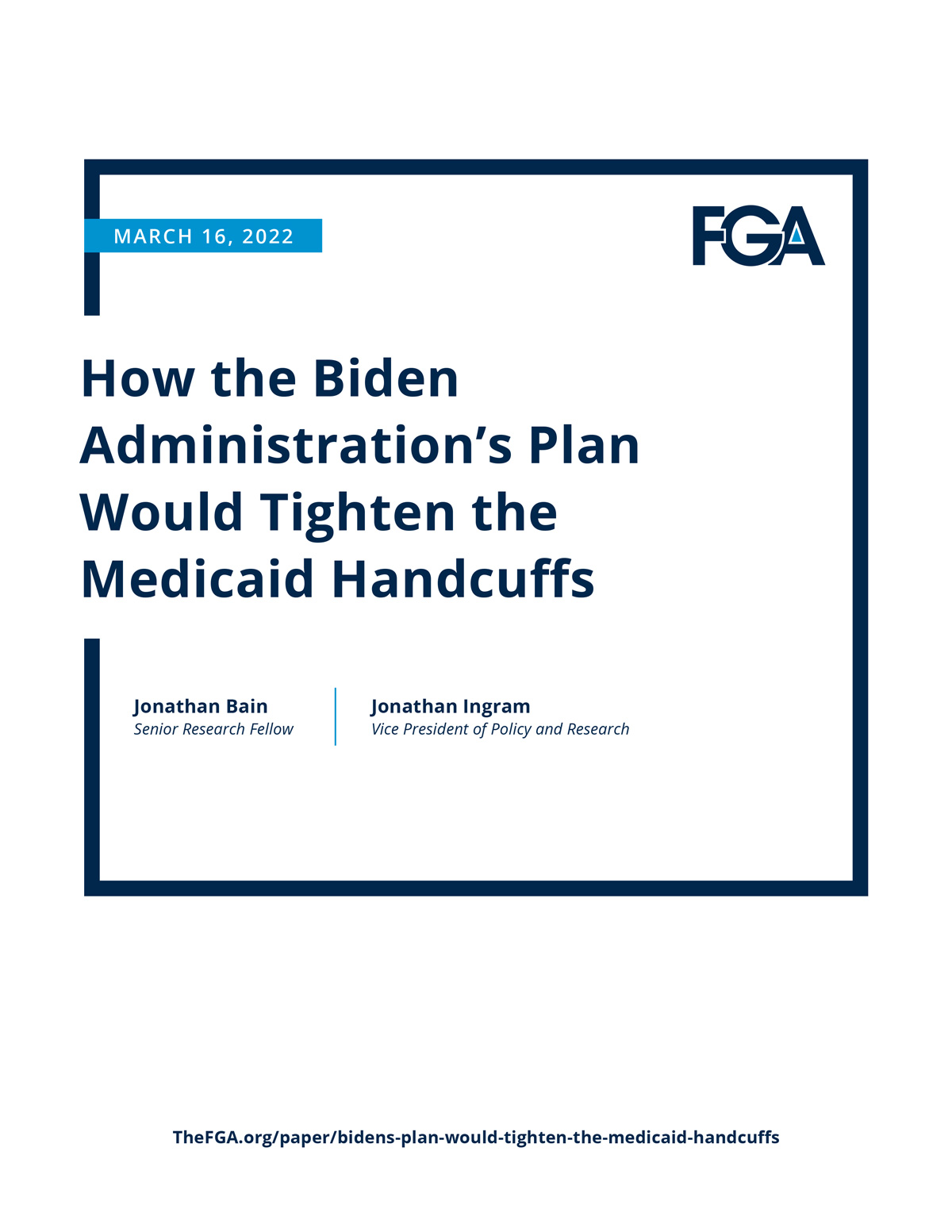
How The Biden Administration’s Plan Would Tighten The Medicaid Handcuffs
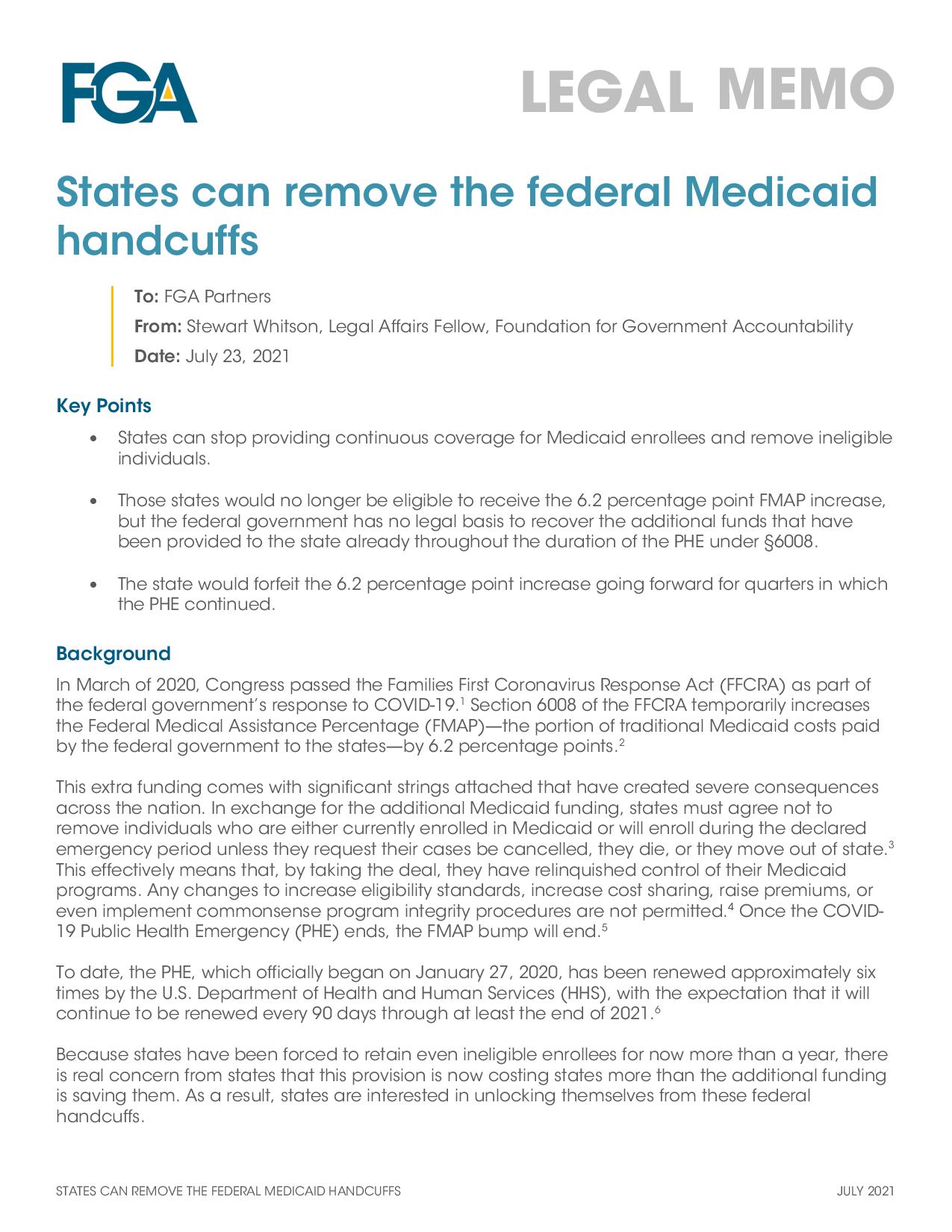
States Can Remove The Federal Medicaid Handcuffs
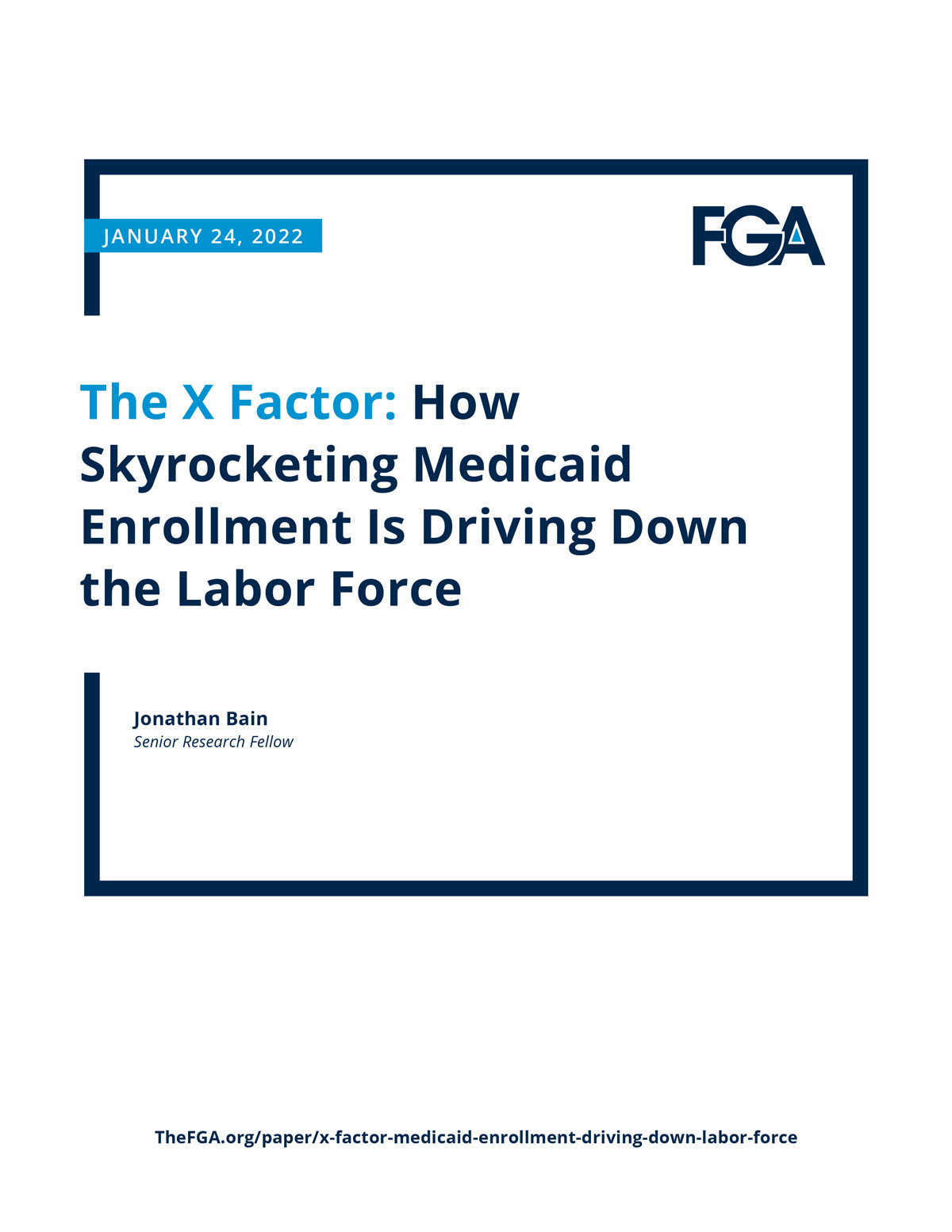
The X Factor: How Skyrocketing Medicaid Enrollment Is Driving Down The Labor Force
